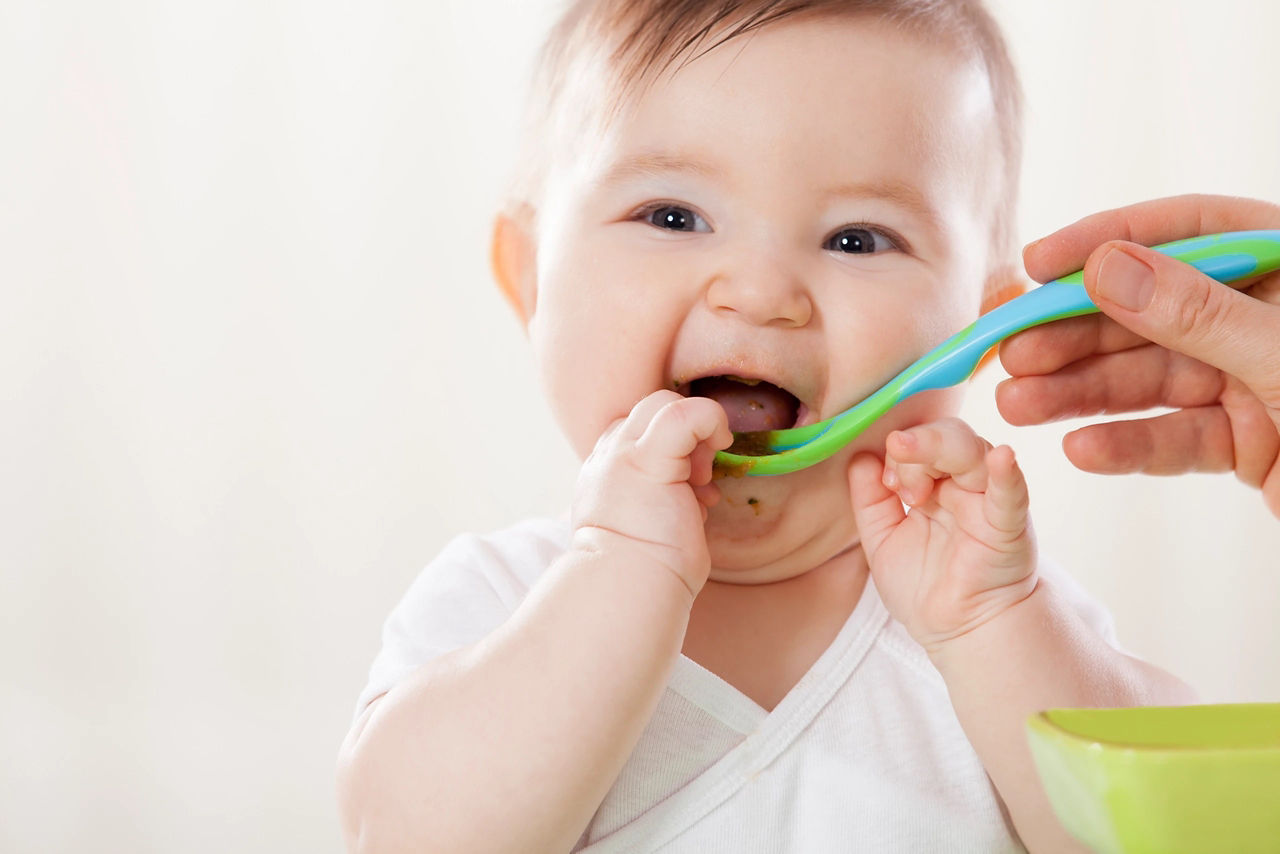Chances are, you’ve been hearing a lot about “gut health” in the past few years, and for good reason! In fact, there are trillions of good reasons to focus on the gut, and they’re called bacteria. They form a community called the “microbiome” which lives in the gut. Research now shows that the brain and the gut communicate. They work together to perform different functions such as producing certain vitamins, and helping the brain process information from your senses, like sights, sounds, flavours, or textures. In a similar way, bacteria in the microbiome communicate with the immune system to help to support its development.
Looking after your Baby's health
The gut and your baby’s developing immune system

Contact with bacteria in the real world is crucial to stimulate the immune system. That’s why it’s OK to let babies play in the sandbox or get a little dirty…it’s exercise for their immune system. However, your baby’s immune system is not yet fully developed at birth, making them especially vulnerable to infection. In the early years, the immune system develops naturally and matures.
In recent years, there has been a lot of discussion around the need to “boost” the immune system, so it can provide a faster and stronger reaction when you get an infection. However, research has shown that when the immune system over-reacts to an infection it can have a negative effect on how your baby respondsto fight harmless infections. That’s why your baby’s immune system needs support – not a turbo charge.
A closer look at prebiotics & probiotics
First of all, you may be asking what the difference is between pre- and probiotics. Here’s what you need to know, in simple terms:
Probiotics are live bacteria, of which there are literally hundreds of species. They can be found in some foods, such as yoghurts and fermented foods.
Prebiotics are their food! Think of them like carbohydrates that help the good bacteria multiply, limiting the growth of potential harmful bacteria, which is good news for your baby’s developing immune system. Prebiotics can be found for example in bananas, chicory, onions, tomatoes.
Synbiotics are a combination of prebiotics and probiotics that work together in the gut.
When given in early life, prebiotics, probiotics and synbiotics can help create the optimal conditions for the development of your baby’s immune system.
As you start to wean your baby at around 6 months, you can begin to introduce foods that will support the good bacteria in your baby’s gut that will continue to have a beneficial effect on their immune system. Prebiotics can be found in bananas, chicory, onions or tomatoes. Probiotics can be found naturally in yoghurts, cheeses such as mozzarella, gouda, cheddar and cottage cheese (unpasteurised cheeses are not suitable for infants), and pickles.
Learn more about when and how to wean your baby here.

Get in touch with our Careline experts
Our nutritionists and feeding advisors are always on hand to talk about feeding your baby. So if you have a question, just get in touch
Important notice
Breastfeeding is best for babies and provides many benefits. It is important that, in preparation for and during breastfeeding, you eat a varied, balanced diet. Combined breast and bottle feeding in the first weeks of life may reduce the supply of your own breast milk, and reversing the decision not to breastfeed is difficult. The social and financial implications of using an infant formula should be considered. Improper use of an infant formula or inappropriate foods or feeding methods may present a health hazard. If you use an infant formula, you should follow manufacturer’s instructions for use carefully – failure to follow the instructions may make your baby ill. Always consult your doctor, midwife or health visitor for advice about feeding your baby.
